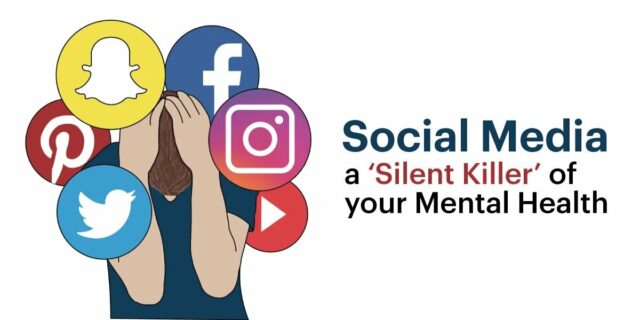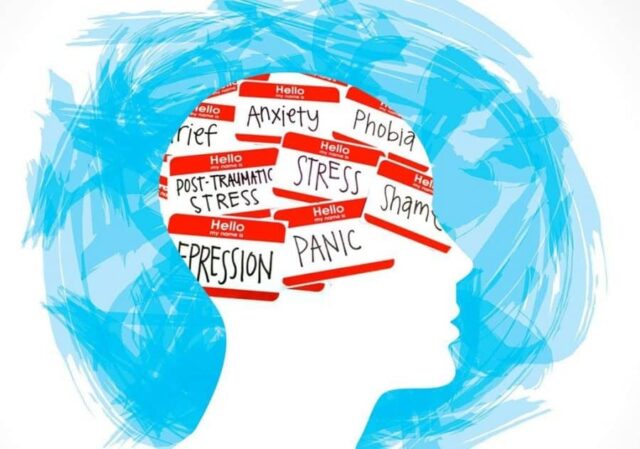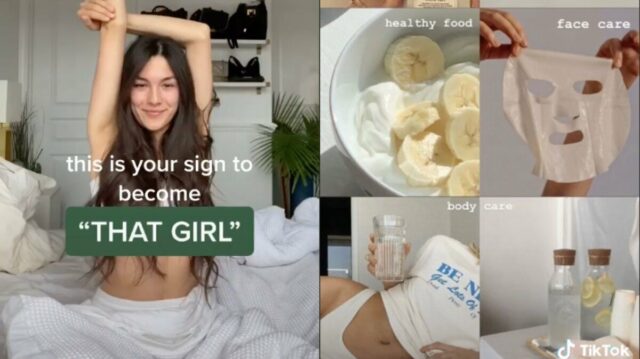The urge of being perfect at all times when it comes to our academics due to the competitive nature of college admissions has been haunting many of us for our entire lives. The willingness to push ourselves beyond our comfort zones just to be a tad bit better than the other kids in class is what kept some of us going for a long time.
Then we grew up to join college and eventually grew out of our desire to push our brains to the limit. Unfortunately, where the pressure of academics ended, the pressure of having a perfect life started.
If you have an Instagram account and have happened to look onto your explore page in the past couple of months then you have definitely come across the That Girl vlogs where a particular user documents their entire day in the form of short videos compiled into a reel.
These types of reels garnered a lot of traffic and all of a sudden almost every other person was documenting their seemingly perfect days into a 30 second video.
The Negativity Which Stems From Social Media Exposure
The pandemic sounds like old news now, does it not? It’s been going on for almost two years with no end in sight so naturally, people are looking for a reprieve.
Unfortunately, the coping mechanism arrived in the form of this abysmally unachievable urge to be perfect in every little way. We went from dalgona coffee, ludo and 2-week ab workouts to going out of our ways to film all the little things we do just to show strangers on the internet how seemingly perfect our lives are.
Since the onset of social media is relatively new and exclusive to mostly Generation Z as they have lived their entire lives amid social media as a background noise, it is difficult to establish long term consequences.
However, various studies have shown that a strong link exists between heavy social media and an increased risk for depression, anxiety, loneliness, self-harm, and even suicidal thoughts.
“Women tend to face the brunt of it more so than men, because being relational by nature they want to take care of everybody,” Dr.Beau Nelson, the director of the Health Clinical said. “And at the end of the day they end up coming back to the well themselves only to find it dry.”
The cravings of perfection are often accompanied with feelings of depression and anxiety. Is perfection a mental illness? Perfectionism by itself cannot be described as a mental illness because it definitely gives rise to other mental illnesses which can be extremely debilitating for young, impressionable teenagers.
“Perfectionism is an unobtainable expectation,” Dr. Nelson said. “Notably, too, perfectionism is not ultimately about achieving perfection, it’s about being good enough.”
However, it has been established that there is a direct correlation between social media and depression. The more time one spends on social media, the more they are susceptible to thoughts of not being enough or growing insecurities about their life and appearance in general.
Social anxiety is usually considered to be a normal part of adolescence. However, when that anxiety becomes chronic and extreme and seriously impairs one’s quality of life, a social anxiety disorder may be at play.
The Obsession With Becoming The ‘Main Character’
All of a sudden, everyone has become the protagonist. Out of nowhere came the prerogative that you are not living your life correctly if you are not romanticising it, which in itself can be a message of hope and of coping that we all need after being locked in our houses for a year. However, in this context, ‘main character energy’ seems to polarize only one type of life.
The phrase ‘main character energy’ describes any situation in which a person is making herself the center of attention, the crux of a particular narrative, as if cameras were trained on her and her alone.
The term can be used appreciatively, acknowledging a form of self-care—putting yourself first—or as an accusation, a calling out of narcissism: a person dressing too extravagantly for a casual event.
Main-character moments are supposed to be those in which you feel ineffably in charge as if the world were there for your personal satisfaction. Unfortunately, a singular type of life that is not always attainable by most of the population is being portrayed as the concept.
Read More: How Social Media Motivational Quotes Can Be More Confusing And Detrimental To Wellbeing
How Does Perfectionism Romanticised On Social Media Affect Mental Health?
Constantly watching reels of people with conventionally perfect slim bodies getting up at 4am, working out, cooking the perfect breakfast for themselves, having the perfect jobs along with the perfect living space decorated with the perfect furniture, with their perfect night outs and perfect eyeliner on their perfect skin can get extremely tiring and is supremely unhealthy for an impressionable mind like a teenager to sit through every day.
It is illogical to hold this life up on a pedestal as real life is far from being perfect. Real life has loads of bumps every single day. Real life contains bodies of all shapes and jobs of every category.
This perfectionism social media promotes is conditioning young minds into believing that only one variable of happiness is available and if you are not a part of this variable then you are not actually happy. This is absolutely barbaric and can be chalked up to false advertising.
The list below highlights some of the things that social media brings to the forefront of any individual’s life:
- Inadequacy About Appearance: All of us are extremely aware of the fact that half the things shown on social media are monitored pictures overlayed with filters, however, that still does not prevent the immediate comparison we do between our bodies and the people we are watching through the screen
- Fear Of Missing Out (FOMO): Videos and pictures of people seemingly having a never-ending party every day or roaming through the streets of Rome or enjoying a stroll through Parisian alleys or just being the ‘main character’ imbibes a strong sense of insecurity which feels like you are constantly missing out on these experiences as you are not living the life those people are.
- Self-absorption: Sharing endless selfies and all your innermost thoughts on social media can create an unhealthy self-centeredness and distance you from real-life connections.
- Isolation, Depression, Anxiety, etc. : For something that has ‘social’ in the name, social media can be pretty isolating. The constant poking and prodding at your life with a microscope is neither healthy nor does it bring anything fruitful to life. The constant exposure to content of this variety can and does induce feelings of anxiety and depression which can have lasting effects.
Conclusion
In a generation where it is considered natural to document every single moment of our lives from the time we wake up to the time we go to sleep, it seems impossible to escape this unspoken competition and pressure.
Humans have always been social creatures. We have always craved company to share in our ups and downs. These emotional connections and companionships are what keep us sane and help us thrive in life.
Being socially connected to others can ease stress, anxiety, and depression, boost self-worth, provide comfort and joy, prevent loneliness, and even add years to your life. On the flip side, lacking strong social connections can pose a serious risk to your mental and emotional health.
However, humans are also extremely critical of themselves. Not regulating what you are exposed to on social media on a daily basis can lead to more harm than good.
If you’re spending an excessive amount of time on social media and feelings of sadness, dissatisfaction, frustration, or loneliness are impacting your life, it may be time to re-examine your online habits and find a healthier balance. Beauty and Perfection are not the prices you need to pay to exist.
Image Sources: Google Images
Sources: PennMedicine, HelpGuide, TheNewYorker, The Guardian +more
Meet the Blogger: Charlotte
This Post is Tagged Under: college admissions, Instagram account, That Girl vlogs, pandemic, coping mechanism, dalgona coffee, ludo, 2 week ab workouts, social media, Generation Z, depression, anxiety, loneliness, self-harm, suicidal thoughts, mental illness, protagonist, romanticising, ‘main character energy’, Main-character moments, perfectionism, social creatures, emotional connections, companionships, stress, boost self-worth, comfort, joy, prevent loneliness, mental and emotional health, sadness, dissatisfaction, frustration, loneliness
Read More:
ResearchED: How Social Media Has Been Used As A Tool For Spreading Terrorism






































